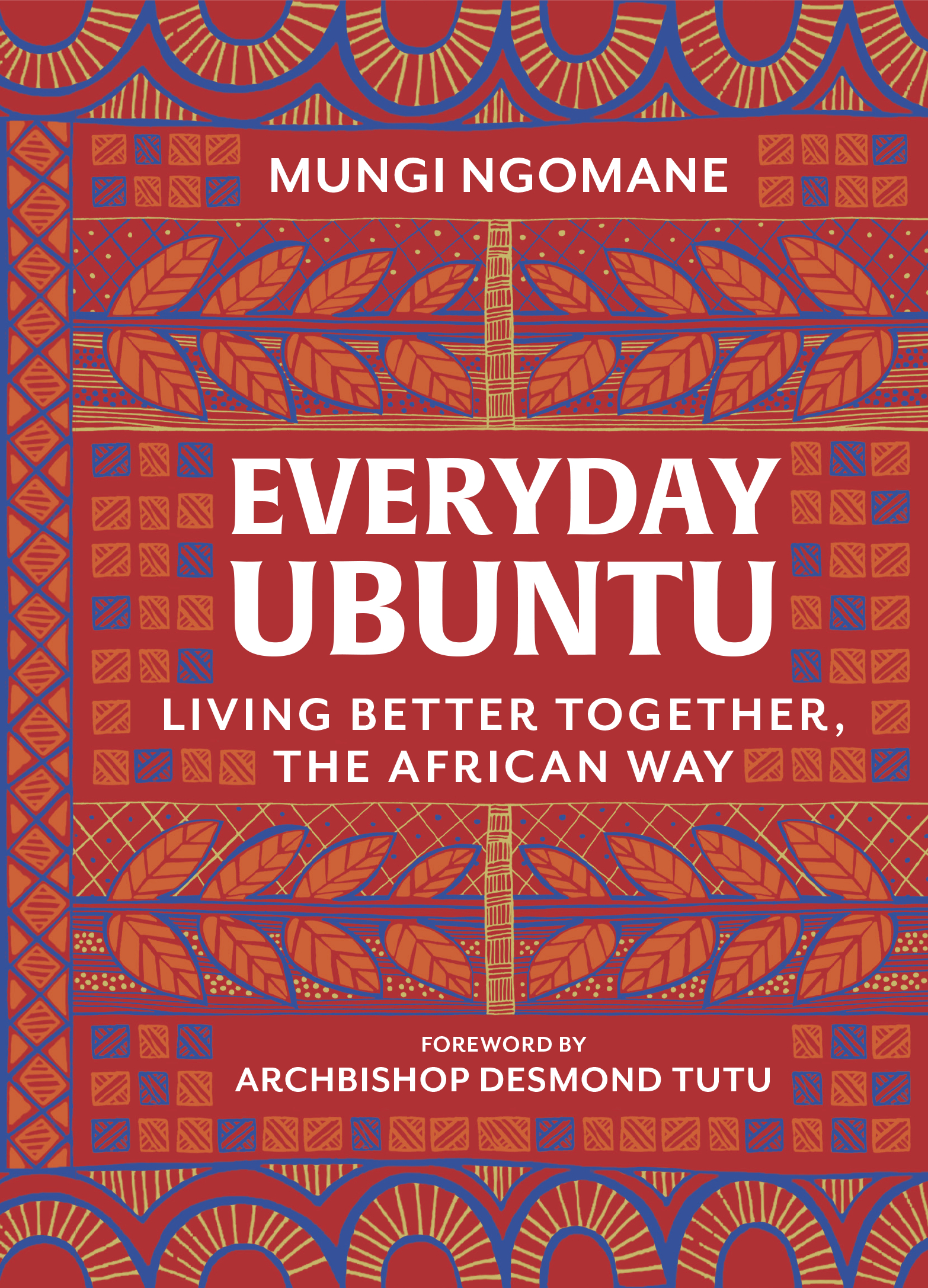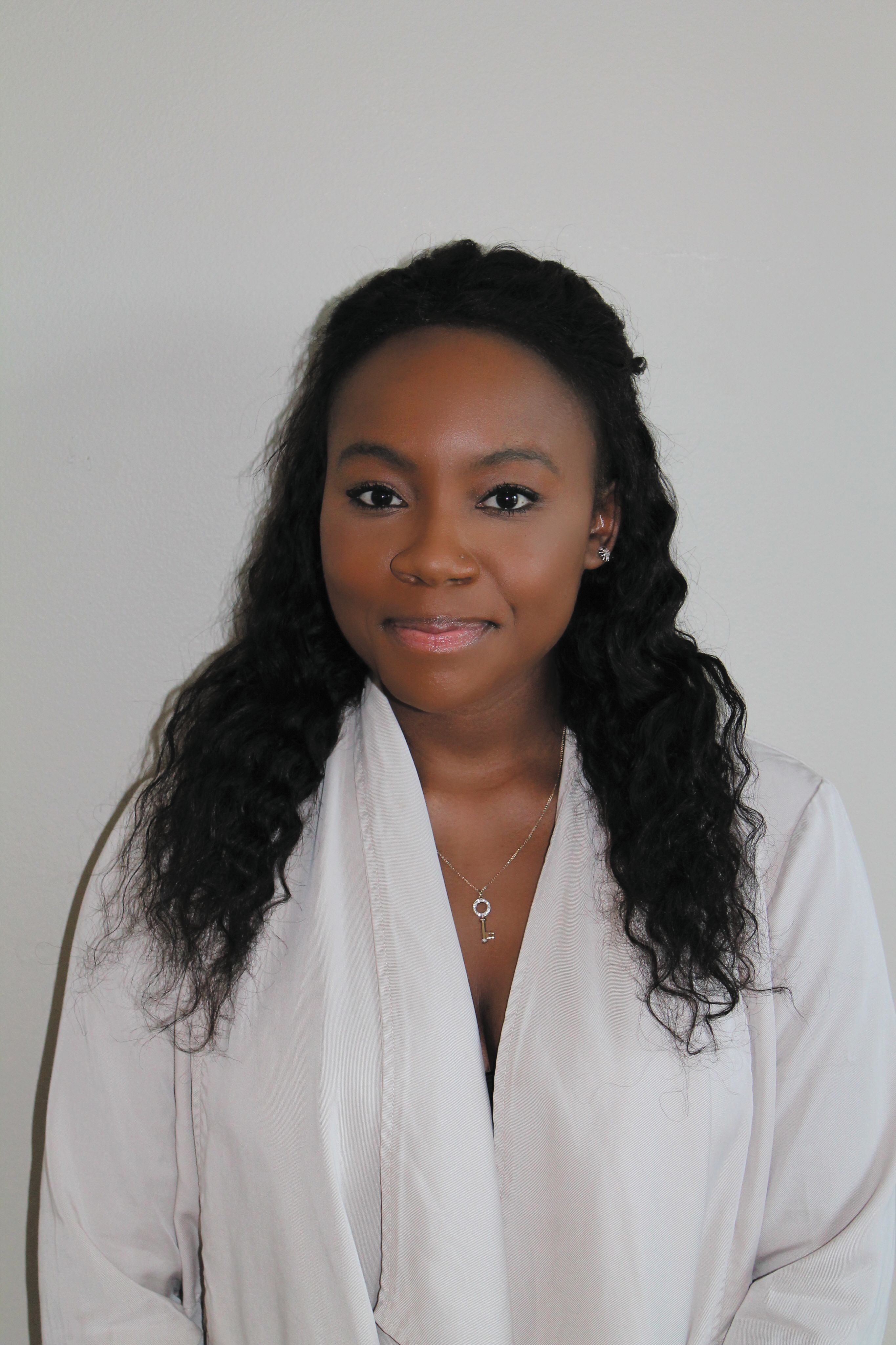YOU CAN’T POUR FROM AN EMPTY CUP
Before an airplane takes off, the flight attendants always deliver advice on what to do in an emergency situation. They explain that if the oxygen masks drop down, because of a fall in oxygen levels at high altitude, passengers should always attach their own masks before trying to help others – including their own children – put on theirs. After all, if you pass out from lack of oxygen, what good are you to anyone else? And this applies to all aspects of life.
My mother learned this lesson the hard way. She brought up me and my brother, Mpilo, as a single mother, while working and being a committed activist for peace and race and gender equality. She is one of the most selfless people I know but rarely takes time out, and this lifestyle can leave her exhausted.
One evening in the early 2000s, her approach to the overbearing demands of a busy life changed. She was due to give a speech alongside the Northern Irish Nobel Peace Prize winner Betty Williams at a university, but everyone was running late. Their flights had been delayed and both Betty and my mother were being rushed from the airport to the hotel. They were then expected to be downstairs, ready to go on stage, as quickly as possible.
My mother was given thirty minutes to prepare herself.
HAVE DIGNITY AND RESPECT FOR YOURSELF AND OTHERS
She set about racing around, changing her clothes and freshening up, and by the time she had run down to the lobby to announce herself, Betty had only just arrived. The organizers told Betty to hurry too, but she smiled and politely declined. She told them clearly and calmly that there was always time. She needed to collect herself, have a cup of tea – maybe a glass of wine. Very nicely she explained that she needed to feel fully rested to perform well and to give the best possible presentation. It was in everyone’s best interests.
My mother was impressed and remembers thinking, “Wow! People are able to say this and it’s OK?” This had not been how she had lived her life up until this point. However, she saw that Betty had come up with a solution that worked for her as well as for others, without putting herself last – an outlook that embodies the spirit of ubuntu. Respectful boundaries are needed so that we can look after ourselves and continue to give to others.
After all, nobody can be expected to pour from an empty cup.
This idea of self-respect being intertwined with respect for others is relevant on a larger scale as well as a personal one.
According to the World Health Organization, hunger is one of the biggest threats to human life on this planet, and adequate nutrition has always been a challenge facing the populations of many African countries.
A group of villages in Lesotho embodies ubuntu as it helps to feed the women living there, who then have the strength to spend their energy on feeding the village children – a thousand of them so far. A charity called Msizi Africa, set up by Lucy Herron in 2007, provides the food in this desperately poor part of the country. It believes that in order for children to grow up healthy and strong, and to reach their full potential, they need a nourishing meal every day as good nutrition is critical for development. The charity provides the women of the village with rice, chicken and fish, and leaves to them the preparation and serving. So far the women have served over 2.8 million meals this way.
This is just one example of lots of charitable work in which communities are helped to help themselves through education, feeding programs and seed funding for businesses. It’s ubuntu in action.
DON’T BE AFRAID TO ASK FOR HELP
Seeking help doesn’t come naturally to many of us. Ubuntu means recognizing other people in yourself, yet turning to other people for assistance can sometimes feel like the hardest thing in the world to do. We worry that it might be viewed as a sign of weakness. It can feel embarrassing – revealing that we don’t know enough or don’t have the ability to do something. We fear feeling stupid or being seen as unable to cope. And we don’t know for sure how the person we’re turning to will respond. Pride or low self-esteem can lead us to pretend nothing is wrong.
Our world – or at least the Western world – is obsessed with the idea of individualism, the belief that personal needs are more important than the needs of society as a whole. A joint study by the Universities of Waterloo and Arizona State, covering a fifty-year period, examined factors linked with individualism, such as family size, higher divorce rates and job trends. Led by behavioral scientists Igor Grossmann and Henri C. Santos, it found individualism first developed in the baby-boomer generation, and evolved alongside an increase in wealth and education in the United States.
The well-known phrase “pull oneself up by one’s bootstraps” underscores the messages of individualism in our culture and leads us to believe we should provide for ourselves, so people end up suffering because they don’t feel as if they can ask for help. At best we might turn to a self-help book or browse the internet for answers to our problems. Why do we find it so hard to turn to other people?
When I was at boarding school, the teachers encouraged students to ask for help, especially as we reached our teenage years, when life starts to get complicated. They told us, “We can only help if we know you’re struggling.”
Before people can help you, they have to see your need.
This invitation made it much easier for us students to speak up when things weren’t going well. It’s not always that easy to know that help is at hand, though. Many of us fear being rejected. When you’re feeling vulnerable and struggling, the last thing you want to hear is, “No, I can’t help you.”
Take heart, however. The reality is that many people like to help others. When a friend turns to you for advice, you likely feel flattered and want to do a good deed, don’t you? Helping others makes a person feel wanted, needed and good about themselves. So reach out and have a little faith.

Follow us here and subscribe here for all the latest news on how you can keep Thriving.
Stay up to date or catch-up on all our podcasts with Arianna Huffington here.


